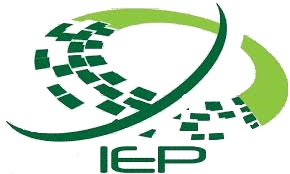| Title: | Insurance in an Islamic Economy |
| Authors: | Prof. Dr. Muhammad Nejatullah Siddiqi |
| Publisher: | Islamic Foundation, UK |

This book is written by one of the pioneer thinkers in contemporary field of Islamic economics. It is written in an analytical fashion and shows the depth in which the author has understood and explained the rationale and structure of insurance.
Risk and uncertainty are a fact and part of life. Adverse events can and do occur. The human response to adverse events naturally is one of displeasure. Most people are averse to risk. They tend to avoid risk if possible. Insurance companies exist in order to allow people to insure against adverse circumstances.
The author explains that it is permissible to protect oneself from the adverse consequences of pure risks. Pure risks are risks that are there in routine part of life and commercial undertakings, such as risk of theft, fire, storms, floods, earthquake, pest attacks in the crop field and so on. They are different from the risk in a gambling activity since the risk in gambling is willingly and consciously taken up by the person entering in gambling. If gambling is avoided, there is no compulsion to take impure risks in gambling since they are not part of the routine course of life and trade.
The author elucidates that insurance is based on the concept of law of large numbers. If one out of 100 cars can suffer an accident in a locality in a given year, then one solution is that everyone tries to self-insure by keeping reserves for meeting with the post-accident expenses. However, if each person shares a particular contribution towards mutual insurance, then everyone in that locality can achieve the aim of insurance from pure risks with a minimal contribution.
For instance, if the average cost of accident is Rs 20,000, then if each of the 100 individuals in that locality share Rs 200 contributions towards mutual insurance, then everyone can achieve the aim of insurance from pure risks.
The author maintains that insurance is not akin to gambling. Gambling is when one is taking impure (unnecessary) risk and has a chance to gain an absolute return.
Insurance covers pure (genuine and often inevitable and natural) risks and even the coverage barely restores the position of policyholder. For instance, if a person has taken car insurance against accident, then even if accident happens and risk is covered, it would just restore the pre-accident state for the policyholder.
In fact, in order to mitigate moral hazard, insurance companies do not cover full cost and have some capping limits and filtered criteria or risk sharing arrangement whereby, not 100% loss is covered. Hence, there is no absolute gain in insurance as against winning in a gamble.
Secondly, the motive of entering in insurance is completely different than gambling. Thirdly, having an insurance cover helps in risk sharing which leads to lower cost in expansion and scaling commercial activities leading to greater economic activity, lower cost and better financial stability.
These economic benefits of insurance are often overlooked when it is plainly compared against gambling which leads to no economic value addition. Hence, the author argues that premiums paid in insurance should be looked as investment or cost of obtaining a service with economic value rather than a loss.
The author wrote this book when Islamic banking was in its early stage nearly 50 years ago. It was an important contribution to explain the concept of insurance and that it serves a useful economic purpose and is not completely incompatible with Islamic principles. With certain modifications, it can be made compatible with Islamic principles.
For instance, by avoiding investment of premiums in Shari’ah non-compliant investments. Likewise, by avoiding excess funds taken up as profit by the insurance company. Rather, the excess funds shall be returned back to the policy holders. Furthermore, using the concept of Wakalah (agency) to compensate the management of mutual insurance alongwith an incentive fee for effective performance and/or profit sharing in Mudarabah based model.
Hence, the work of Prof. Dr. Nejatullah Siddiqi through this book focused attention towards finding a compatible way to enable mutual insurance which as a concept is beneficial both for individuals, society and economy.
Prof. Siddiqi is sceptical of allowing greater role of private sector in insurance. It is partly because benefiting from law of large numbers requires a greater pool of funds and wide spread of risk. But, this may be possible with market concentration. If there is a natural public monopoly, it may be compelled to restrict itself to fair pricing and returns. But, if monopoly is in private hands, then it may lead to more pricing power and exploitation of consumers.
However, as the industry developed, reinsurance arrangements also got more developed and sophisticated. Now, in many segments, private sector can also operate in a competitive market with reinsurance arrangements. Hence, as also admitted by the author that private sector has an edge in bringing effective management, fresh ideas, innovations and better service, the role of private sector can be allowed under sound corporate governance.
This book is one of the few works in Islamic economics literature on that topic that looks at the issue in an academic, scientific, and analytical way. Subsequent attention on developing Takaful as an Islamic insurance through Wakalah-Waqf model and Mudarabah model paved the way of serving the economic need of mutual insurance.
Currently, there are two major types of Takaful products. General Takaful plans are intended to meet the insurance needs of people and corporate bodies in connection to materialistic loss or damage done due to any catastrophic condition. On the other hand, Family Takaful plans are intended for broader needs which include long-term saving plans for meeting future financial needs, such as marriage, educational needs and health needs, for instance.

